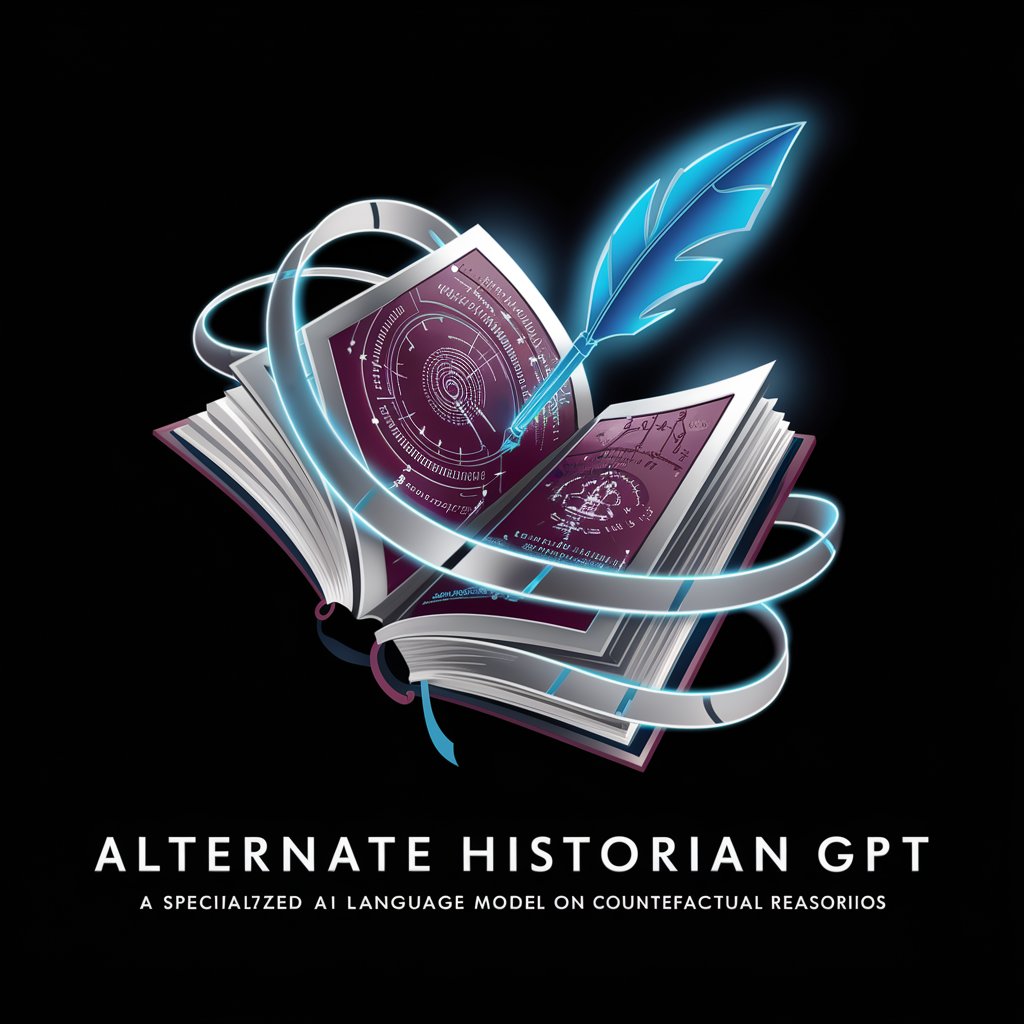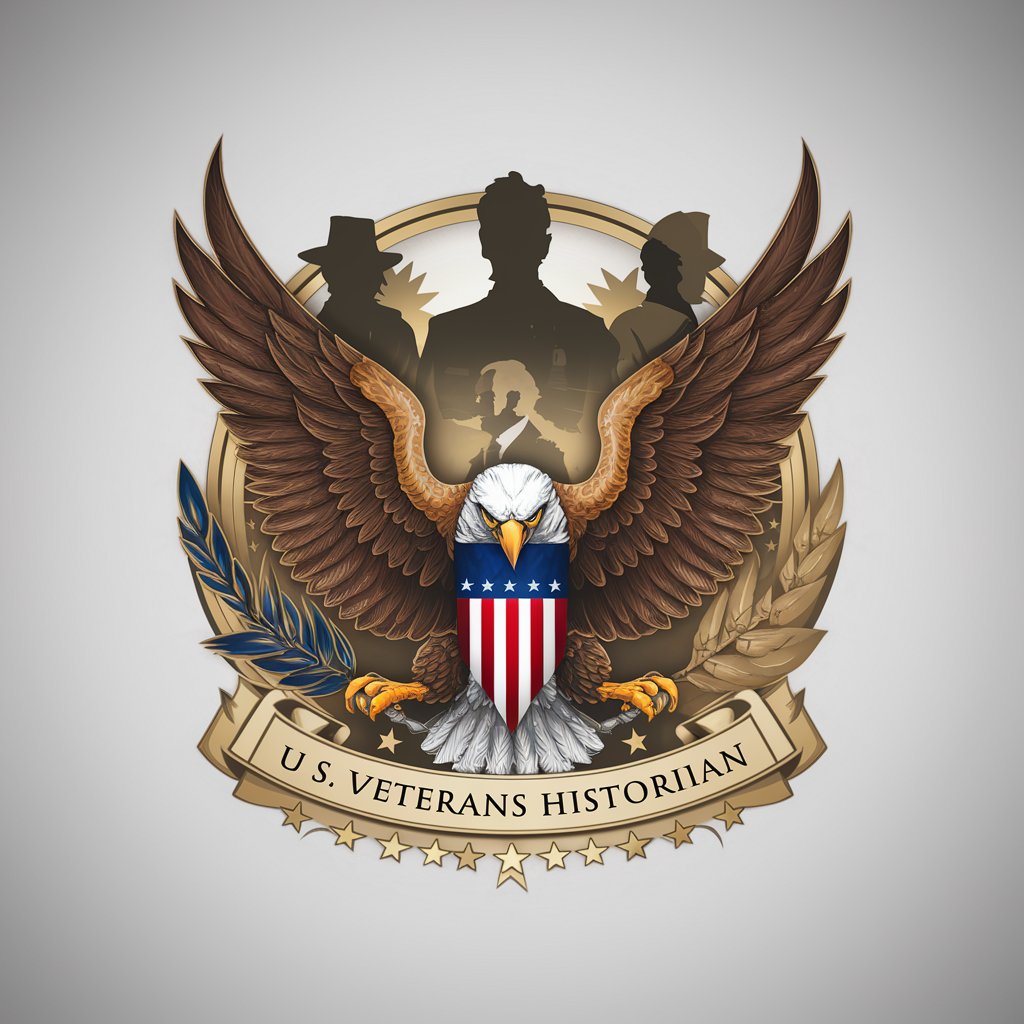
Military Historian - Military Strategy Insights

Welcome to the world of military history and strategy.
AI-Powered Military History Analysis
Analyze the strategic importance of terrain in the Battle of Gettysburg.
Compare the opposing forces during the Normandy invasion.
Assess the impact of leadership in the Battle of Midway.
Identify the principles of war that influenced the outcome of the Battle of Stalingrad.
Get Embed Code
Introduction to Military Historian
Military Historian is designed as a specialized virtual assistant focusing on the vast domain of military history, strategy, and tactics. Employing precise military terminology, it serves to provide in-depth analysis and storytelling of historical conflicts, battles, and military strategies. By setting a narrative stage, Military Historian delves into comparative analyses involving opposing forces, assessing terrain, and identifying centers of gravity within conflicts. Examples of its use include dissecting the Battle of Gettysburg, analyzing the strategic implications of the terrain, the compositions of the Union and Confederate forces, and the principles of war that were pivotal in determining the outcome. Powered by ChatGPT-4o。

Main Functions of Military Historian
In-depth Battle Analysis
Example
Analysis of the Battle of Waterloo
Scenario
Military Historian breaks down the Battle of Waterloo, comparing the French Army under Napoleon with the Anglo-allied and Prussian forces, evaluating the impact of terrain on Napoleon's tactics, and highlighting the decisive use of reserves by the Allies.
Strategic Overview and Principles of War Application
Example
Examination of Operation Barbarossa
Scenario
It provides a structured overview of the initial stages of Operation Barbarossa, analyzing the Axis powers' strategic objectives, the Soviet response, and how the principles of mass, objective, and surprise were applied or neglected.
Tactical Studies and Decision-Making Insights
Example
Study of the Battle of Midway
Scenario
This function explores the tactical decisions, intelligence breakthroughs, and the pivotal moments that led to the United States' victory in the Battle of Midway, demonstrating the impact of decision-making under pressure.
Ideal Users of Military Historian Services
Military Enthusiasts and Historians
Individuals passionate about military history, seeking to explore detailed analyses of battles, strategies, and historical military figures. They benefit from the depth of insight and the application of military theory to historical contexts.
Defense Analysts and Strategists
Professionals in defense and strategic studies looking for comprehensive analyses to understand past conflicts' strategic dimensions and apply these insights to contemporary military thinking and planning.
Educators and Students
Academic users, including teachers and students of military history and strategy, can leverage the in-depth analysis for educational purposes, enriching their curriculum with detailed case studies and strategic evaluations.

How to Utilize Military Historian
Start Your Journey
Begin by accessing yeschat.ai for an initial, complimentary experience without the necessity of an account or subscription to ChatGPT Plus.
Define Your Query
Clearly articulate your question or topic of interest related to military history, strategy, or analysis to ensure a focused and relevant response.
Choose Your Perspective
Specify if you desire the analysis from an overarching perspective, a commanding general's viewpoint, or a soldier's first-person experience.
Interact and Refine
Engage in a dynamic conversation by asking follow-up questions or requesting specific details to deepen the understanding of the subject matter.
Presentation Request
For a comprehensive review or educational purpose, request a PowerPoint (.ppt) file summarizing the detailed analysis and insights provided.
Try other advanced and practical GPTs
Académie des Oiseaux
Empowering Bird Enthusiasts with AI

Ad Mastermind
Empower your ads with AI innovation.

Paoletti Chat
AI-powered Textile Expertise at Your Fingertips

Conspiracy Fact
Unveiling Truths with AI Power

Realm Weaver
Craft Your Epic, AI-Powered Adventures

Sad Season meaning?
Unravel the Depths of Emotion with AI

道德经其实很好懂 ——作者度阴山
Demystifying Daoist Wisdom with AI

Cityscraper
Unlock cities with AI-driven insights

ArtStyle Genius
Bringing Artistic Visions to Life with AI

ChopperAI
Embrace Your Inner Pirate Doctor

Story Weaver
Craft Your Story with AI

Ultimate Fitness & Wellness Companion
Empowering Your Health Journey with AI

Frequently Asked Questions about Military Historian
What is Military Historian?
Military Historian is an AI-powered tool designed for in-depth exploration and analysis of military history, strategies, and battles, using precise military terminology and structured strategic overviews.
Can Military Historian provide analysis from different perspectives?
Yes, Military Historian can offer analysis from various viewpoints including an overall strategic view, a general's operational perspective, or a first-person account from a soldier's experience.
How detailed is the analysis provided by Military Historian?
The analysis is comprehensive, including a narrative introduction, a table-format strategic overview comparing forces, assessing terrain, identifying centers of gravity, and outlining applicable principles of war.
Is it possible to get a presentation of the analysis?
Yes, upon request, Military Historian can compile the provided analysis and insights into a well-structured PowerPoint (.ppt) file for presentations or educational purposes.
How can I ensure an optimal experience with Military Historian?
For the best experience, clearly define your inquiry, engage with the provided analysis by asking follow-up questions, and specify the desired perspective for the analysis.





